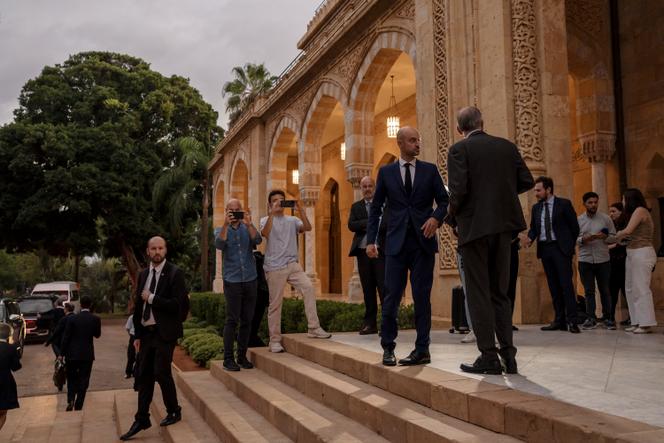


The escalation between Israel and Iran risks further weakening France's position in the region. One year after the October 7 attacks, as the war in Gaza continues, Paris has sided with Israel and the United States in condemning the firing of some 200 Iranian missiles into Israel on Tuesday evening. Tehran was seeking to retaliate for operations orchestrated by Israel to eliminate Hezbollah and Hamas officials.
As the region threatens to flare up, France closed ranks with Israel's main Western allies on Wednesday, October 2, during a videoconference of G7 leaders. President Emmanuel Macron, who was on a trip to Berlin, was represented by Foreign Minister Jean-Noël Barrot. The seven richest democratic powers on the planet expressed their "strong concern over the escalation" of the conflict in the Middle East and "firmly condemn[ed]" the Iranian attack on Israel the previous day.
The Americans are trying to frame the response announced by Israeli Prime Minister Benjamin Netanyahu. Joe Biden has clearly set a red line for Israel, which is not to attack Iran's nuclear facilities. "All seven of us agree that they have a right to respond but they should respond proportionally," said the American president after the G7, without detailing the specifics of such a response.
At the end of a Defense Council meeting at the Elysée Palace on Tuesday evening, Macron himself condemned "in the strongest possible terms" Iran's latest attacks against Israel. In the name of the Jewish state's "security," he also reiterated "France's demand that Hezbollah cease its terrorist actions against Israel and its population." He also expressed his desire for "Israel to end its military operations" in Lebanon as soon as possible.
"Israel's security is non-negotiable," said Armed Forces Minister Sébastien Lecornu in an interview with news magazine Le Point. Lecornu, who is close with Macron and attended Tuesday evening's Defense Council alongside Prime Minister Michel Barnier and Barrot, believes that "the insecurity and destabilization agenda is driven by Tehran and its proxies." This includes on Israel's northern border, with Hezbollah; in Iraq, with Shiite militias; or in the Red Sea, due to attacks by the Houthis.
The Israeli intelligence services' penetration of Hezbollah has taken Paris by surprise. France is now questioning the extent of Israel's intelligence on Iran. A diplomatic source said: "We're going in blind, but the quality of Israeli intelligence on Iran is what will guide the Israelis' future actions. We don't weigh in the equation, we go along with what the Americans and Israelis tell us about Iran. The idea is circulating in certain circles that perhaps the Israelis are leading us toward a historic moment, that this is the beginning of the end for the Iranian regime."
You have 57.15% of this article left to read. The rest is for subscribers only.
